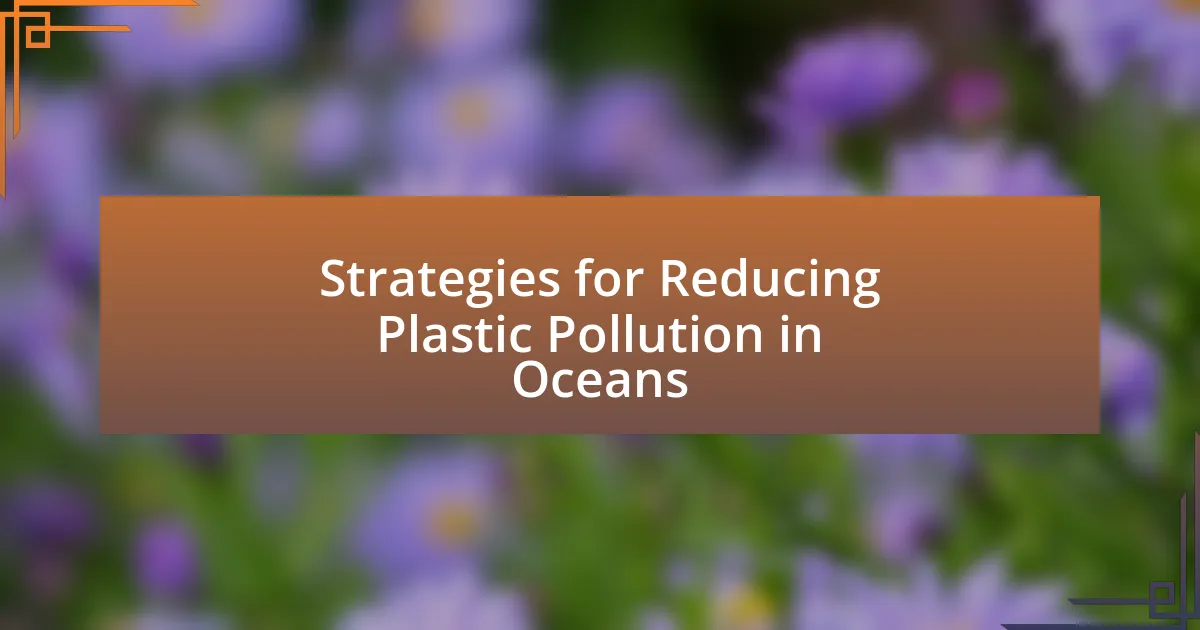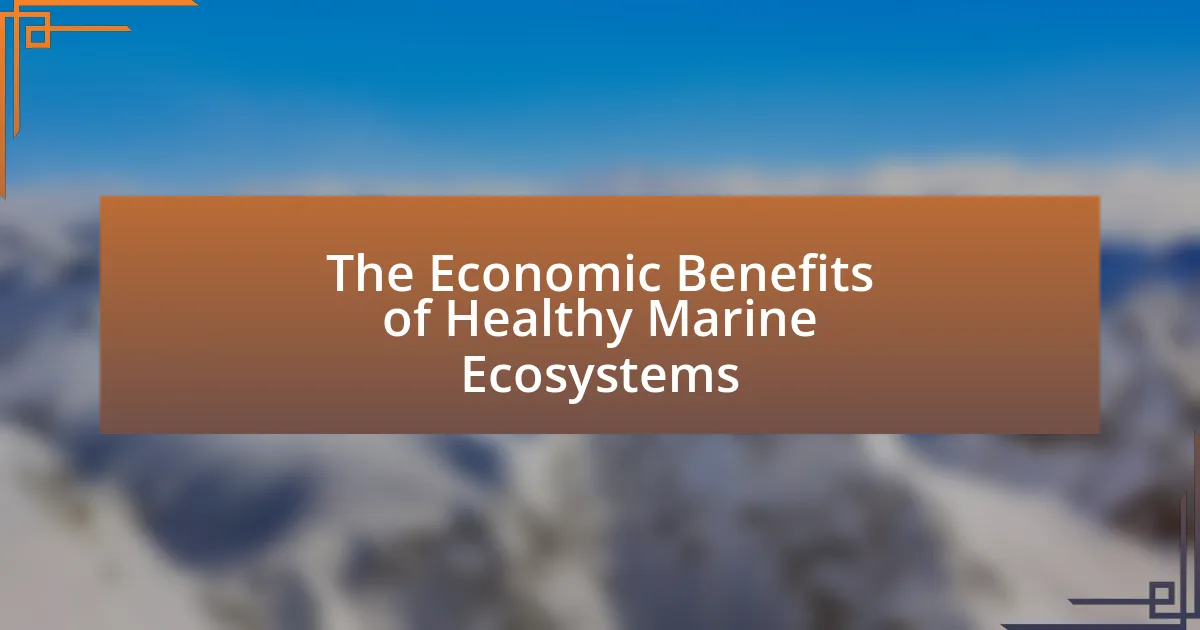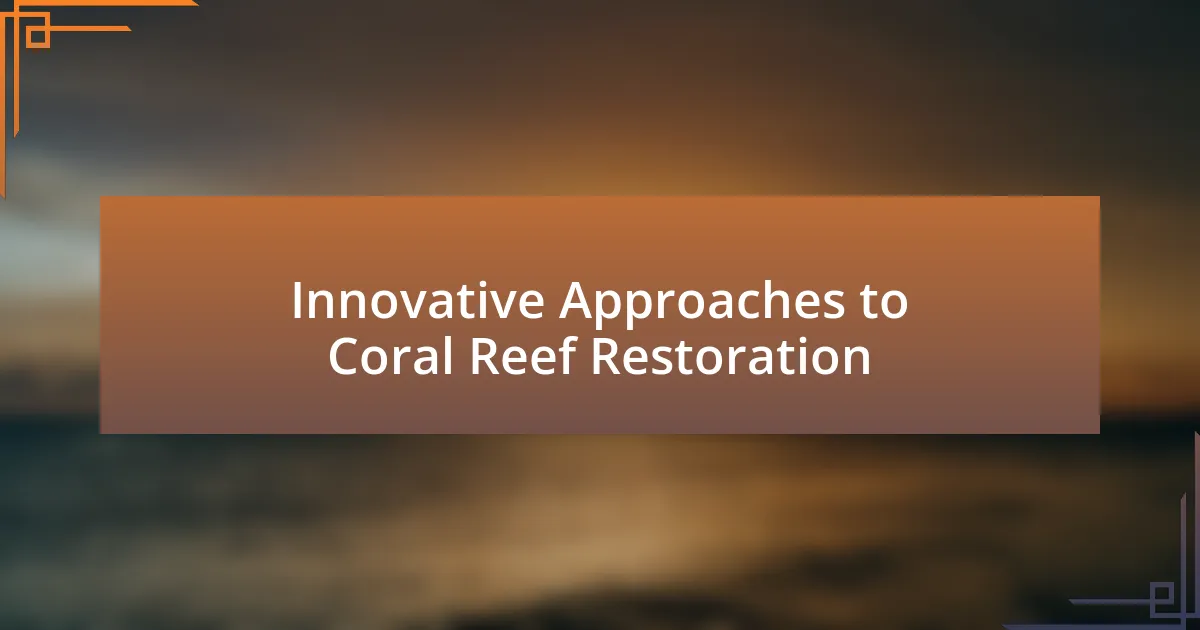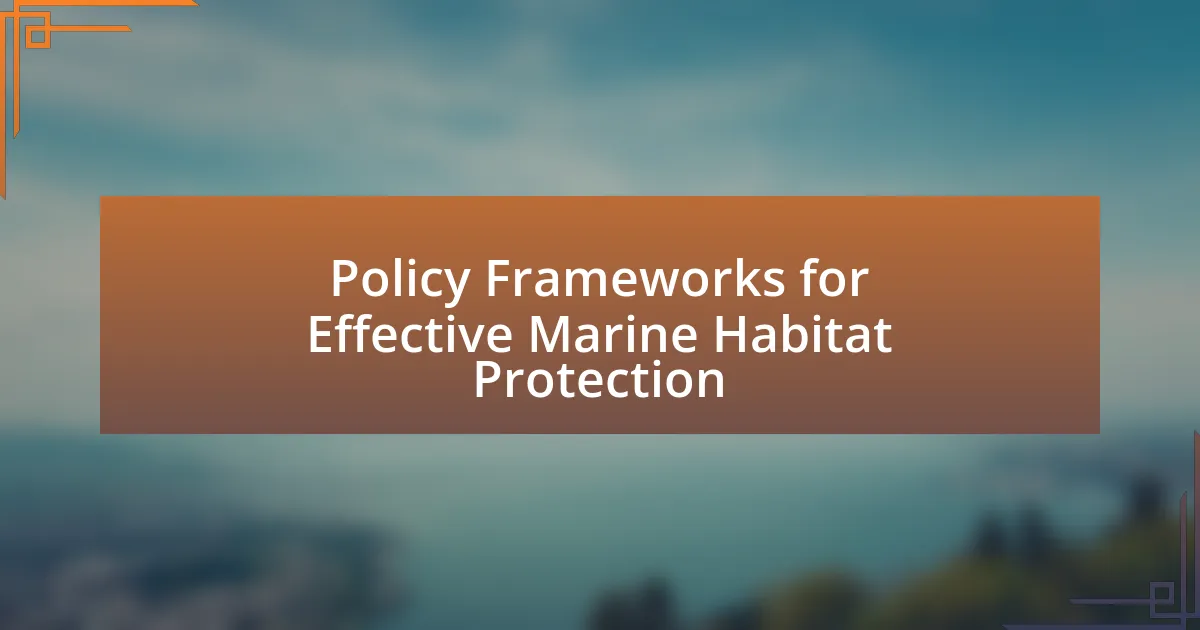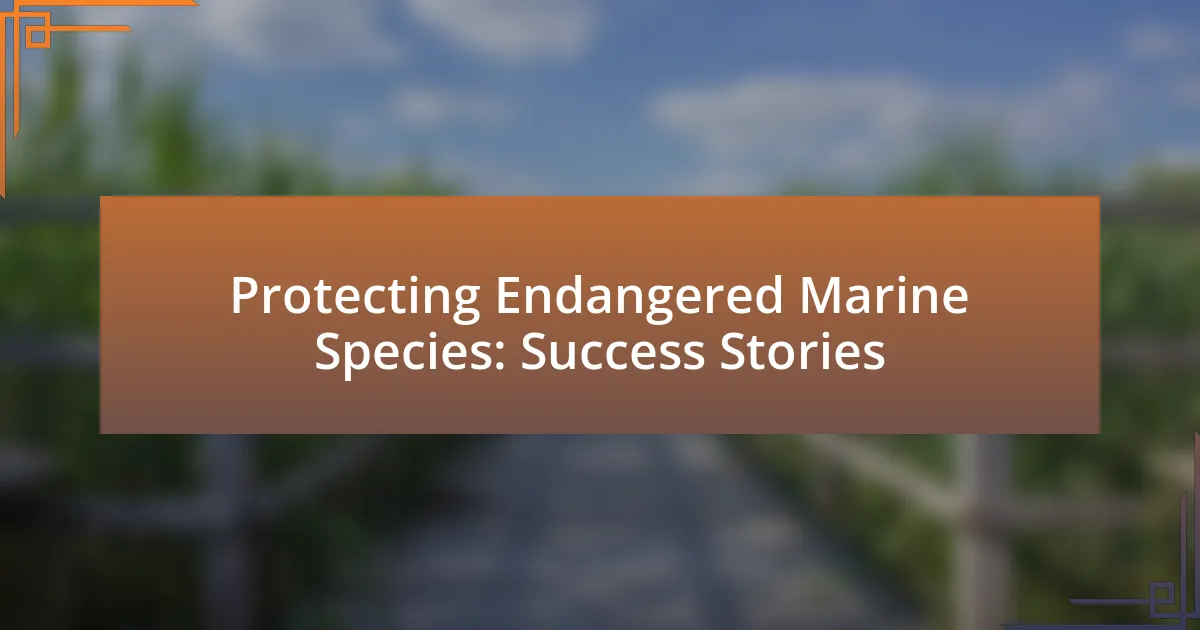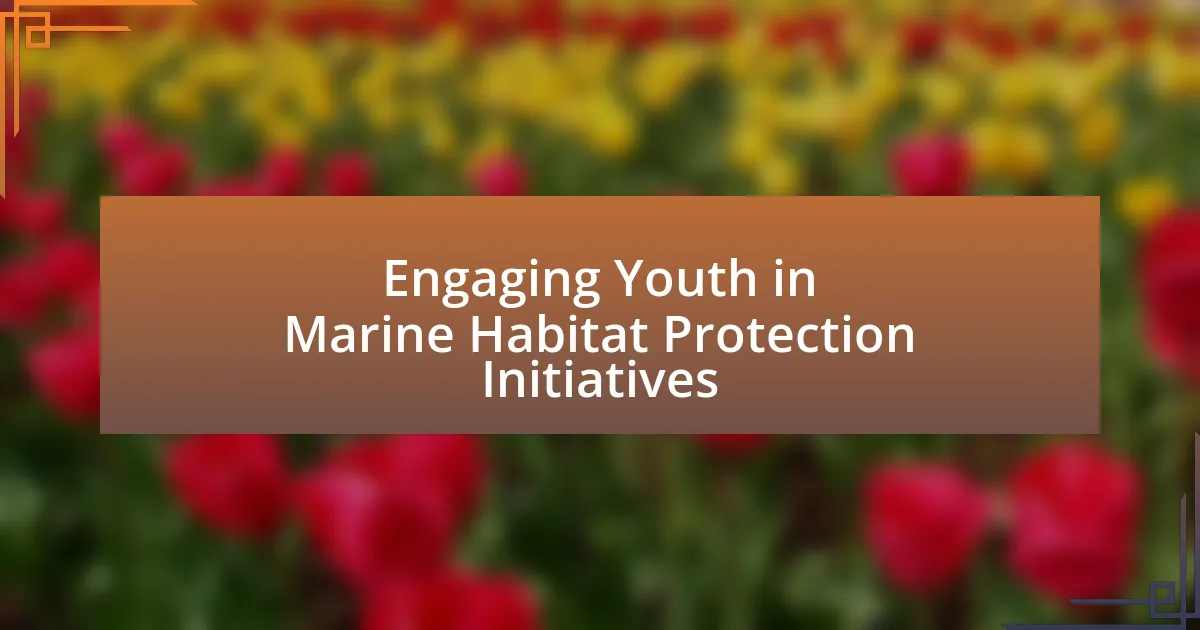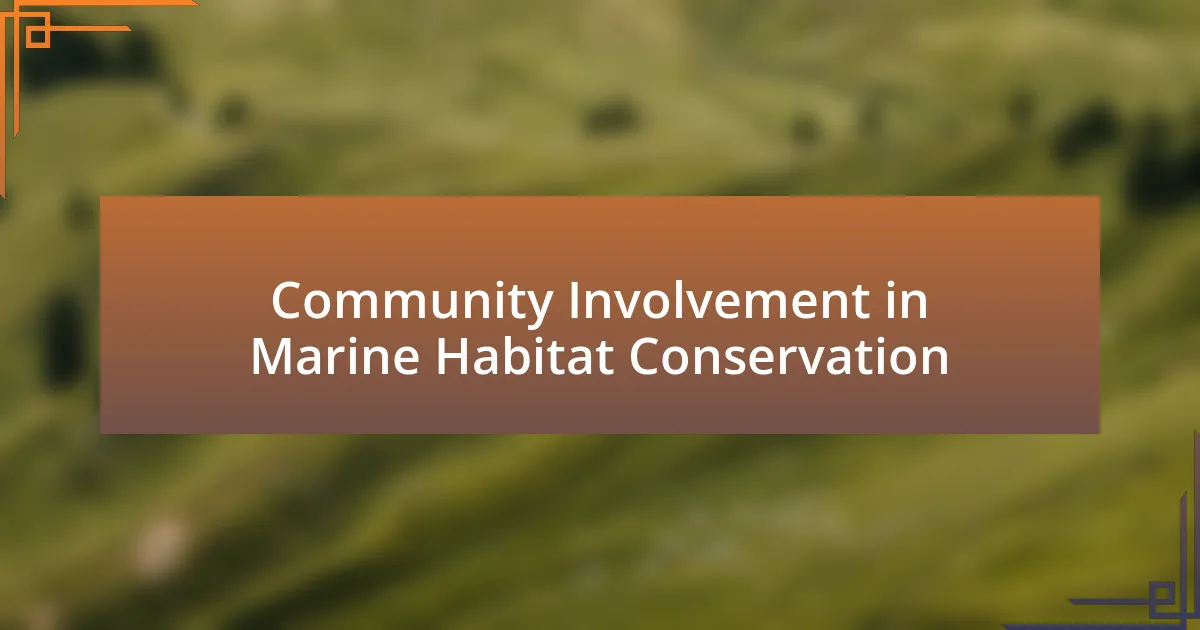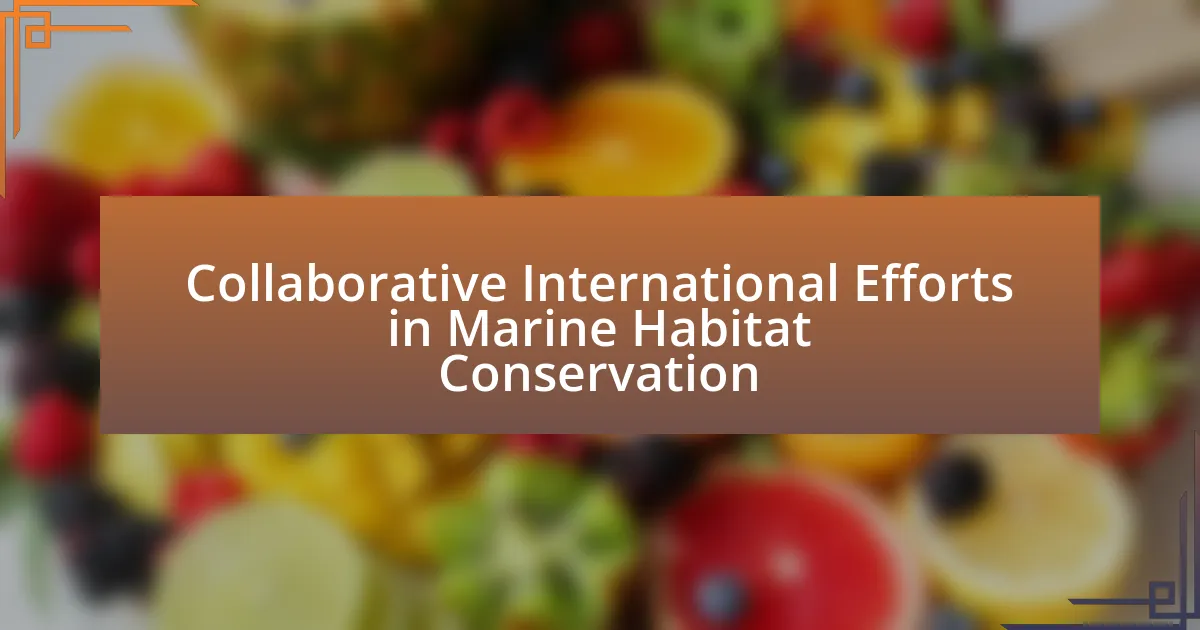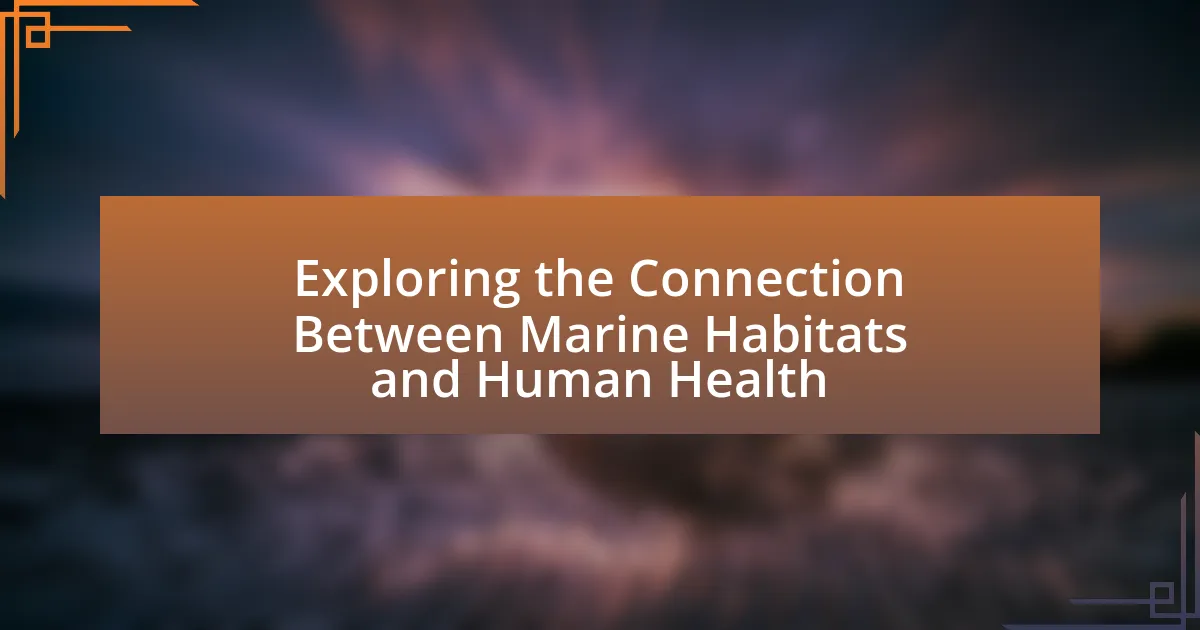The article focuses on strategies for reducing plastic pollution in oceans, highlighting key approaches such as improving waste management systems, promoting recycling, implementing bans on single-use plastics, and enhancing public…
The Economic Benefits of Healthy Marine Ecosystems
Healthy marine ecosystems are vital for economic prosperity, contributing significantly to fisheries, tourism, and coastal protection. Sustainable fisheries alone generate approximately $100 billion annually, while marine tourism accounts for over…
Innovative Approaches to Coral Reef Restoration
The article focuses on innovative approaches to coral reef restoration, highlighting techniques such as coral gardening, artificial reefs, and genetic interventions. These methods differ from traditional restoration techniques by utilizing…
Restoration of Degraded Marine Habitats: Case Studies
The article focuses on the restoration of degraded marine habitats, detailing the processes involved in rehabilitating damaged ecosystems to restore their health and functionality. It highlights the importance of marine…
Policy Frameworks for Effective Marine Habitat Protection
Policy frameworks for effective marine habitat protection encompass a range of legal regulations, management strategies, and collaborative governance approaches aimed at safeguarding marine ecosystems. These frameworks include international agreements like…
Protecting Endangered Marine Species: Success Stories
Endangered marine species are aquatic organisms at high risk of extinction due to factors such as habitat loss, overfishing, pollution, and climate change. The article outlines the classification process for…
Engaging Youth in Marine Habitat Protection Initiatives
Marine Habitat Protection Initiatives are essential programs designed to conserve and restore marine ecosystems, focusing on strategies such as establishing marine protected areas and regulating fishing practices. The article highlights…
Community Involvement in Marine Habitat Conservation
Community involvement in marine habitat conservation encompasses the active participation of local communities in protecting and managing marine ecosystems. This article outlines the significance of community engagement, highlighting its role…
Collaborative International Efforts in Marine Habitat Conservation
Collaborative international efforts in marine habitat conservation involve multiple countries and organizations working together to protect and restore marine ecosystems. Key initiatives include the Convention on Biological Diversity and the…
Exploring the Connection Between Marine Habitats and Human Health
The article explores the significant connection between marine habitats and human health, highlighting how ecosystems such as coral reefs, mangroves, and seagrass beds provide essential resources, support biodiversity, and contribute…
